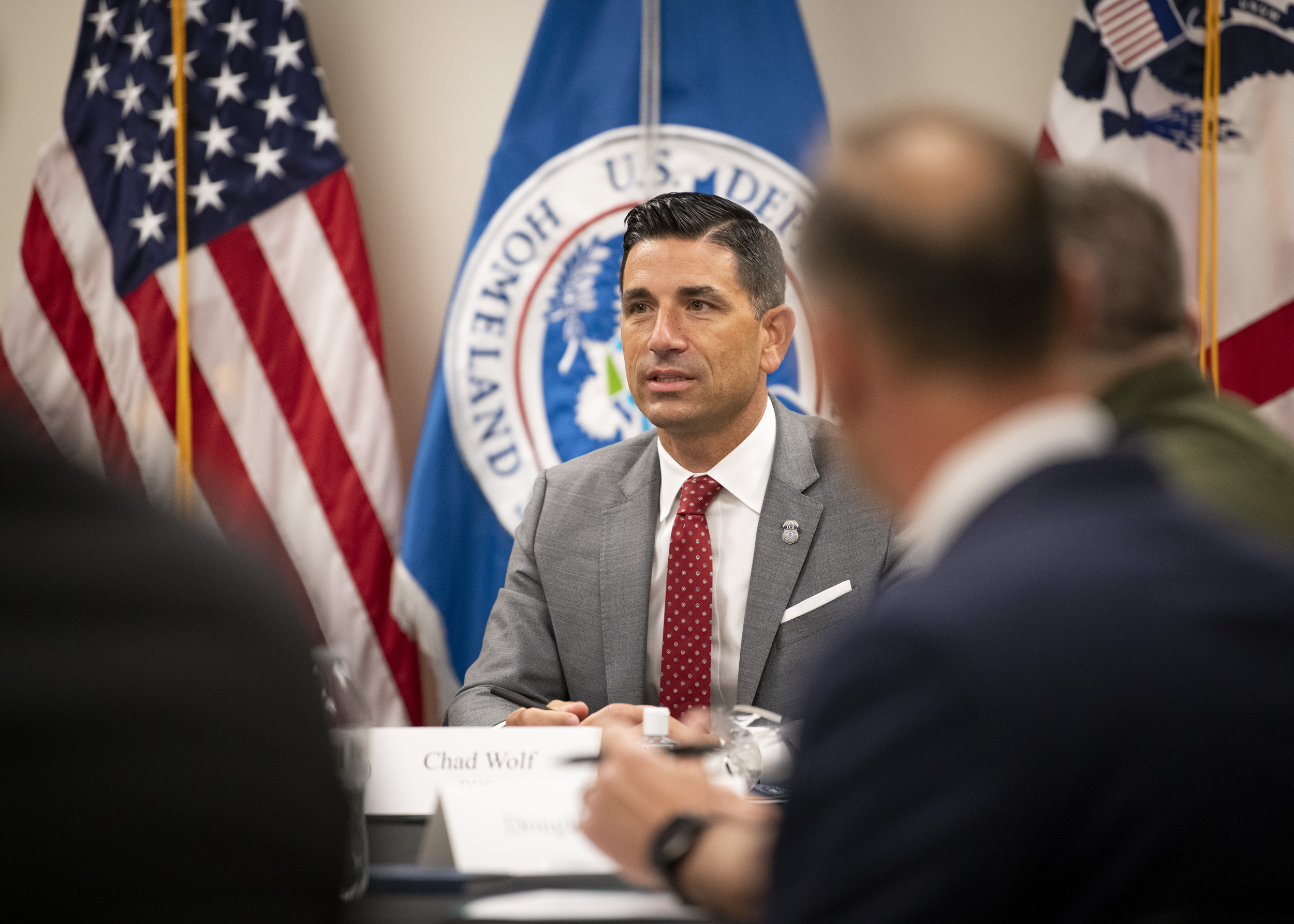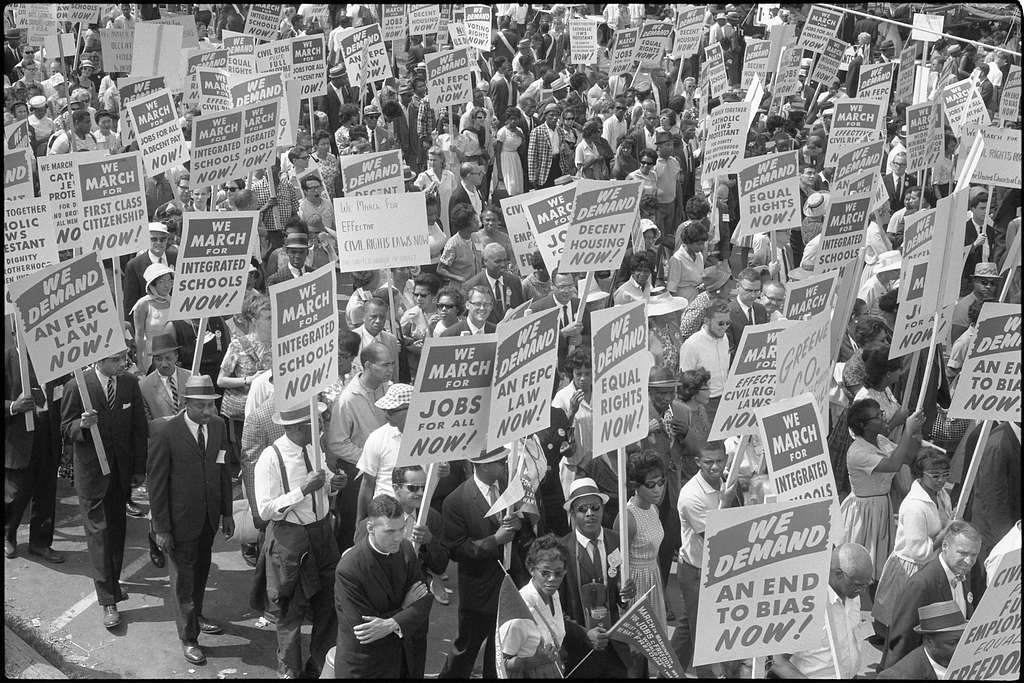Unpacking The 2020 Portland Chaos
Reactions to the unredacted version of the Department of Homeland Security’s 2021 Report on the 2020 Portland riots, released in October 2022.

In October 2022, an unredacted version of a redacted 2021 report sponsored by Department of Homeland Security (DHS) Acting Secretary Chad Wolf regarding the 2020 Portland riots was released to the public. The Wolf report was supposed to review the actions of the department’s intelligence branch as it related to the riots. But because of its actual scope and the way it was conducted, the report has been outlined as flawed and politically motivated. I was named in this report, and my intent is to put the report back into context now that an unredacted version has been released.
As background, I was a civil servant in the federal government from 1994 to 2021. I began as an officer in the United States Marine Corps. Following the Marines, I joined the FBI as a special agent. Over 20 years, I served as a street agent and then worked my way up to become a member of the senior executive service. During my tenure, I led the FBI’s largest social media-based threat monitoring operations. During my career, I served in New York, Afghanistan, Algeria, Tunisia, Niger, Pittsburgh, Chicago, and Washington, D.C. In 2004, my service in the FBI was interrupted for about a year as I was recalled to active duty as a Marine and served a combat tour in Iraq. In 2018, I joined DHS as the highest-ranking career official in the Office of Intelligence and Analysis (I&A). In March 2020, after the politically appointed official departed I&A, I became the career official serving as the acting under secretary.
Timeline:
March 2018: I joined DHS as the highest-ranking career official.
November 2018: I filed my first whistleblower complaint.
May 2019: I filed my second whistleblower complaint.
March 2020: I became the career official serving as the acting under secretary.
July 2020: I was temporarily reassigned by DHS Acting Secretary Chad Wolf
September 2020: I filed my third whistleblower complaint.
January 6, 2021: DHS released a redacted version of a report ordered by Wolf, “Report on DHS Administrative Review into I&A Open Source Collection and Dissemination Activities During Civil Unrest Portland, Oregon, June through July 2020.”
April 20, 2021: DHS responded to a congressional mandate with a report titled, “Office of Intelligence and Analysis Operations in Portland.”
April 27, 2021: A DHS inspector general official filed a whistleblower complaint regarding my case.
October 2022: An unredacted version of the Jan. 6, 2021, report from Wolf was released.
The report commissioned by Wolf, titled “Report on DHS Administrative Review into I&A Open Source Collection and Dissemination Activities During Civil Unrest Portland, Oregon, June through July 2020,” is not an inspector general report or some type of typical government investigative inquiry. It was not conducted by qualified investigators or trained inspectors. By the time the summer of 2020 rolled around, I had already officially blown the whistle on Wolf and other Trump political appointees at DHS.
The substance of the majority of my allegations was that Wolf and others continually attempted to change and manipulate intelligence to support political objectives. In my whistleblower complaints, the categories I listed included downplaying threats from Russia to elections, hyping threats on the southwestern border to support the building of the wall, trying to minimize the impact of white supremacy, and the inflation of far-left domestic terrorism groups such as antifa and anarchists. As a result, I was repeatedly told by officials in DHS that Wolf and other political appointees had put a target on my back and wanted me gone. I filed my first whistleblower complaint in late 2018, a second in early 2019, and my third in September 2020. Most of the allegations I made predate the 2020 Portland events. And many of those allegations have been validated (despite the extraordinary headwinds coming from the inspector general’s office, as detailed below). For example, there were Wolf’s unlawful attempts to interfere with intelligence related to the 2020 elections. The inspector general found Wolf’s behaviors to be problematic given that they were outside of the normal intelligence process.
Investigative reporting by POGO and the New York Times has shown that Wolf’s investigation into the 2020 Portland riots was bogus and retaliatory. POGO’s reporting also included interviews with inspectors, who pointed out that it was unusual that the Wolf investigation was even allowed to proceed ahead of a formal inspector general investigation. DHS inspector general employees took it upon themselves to call this out as a problem, according to POGO. The matter became so egregious that a senior member of the DHS inspector general staff filed in April 2021 a complaint with a separate federal oversight organization. In this complaint, he raised substantial concerns over how my 2020 whistleblower case was being handled. He accused the DHS inspector general, lead counsel, and chief of staff of “gross mismanagement and conduct that undermines the independence or integrity reasonably expected.” The complaint indicates the inspector general delayed the start of the investigation until after the 2020 elections. The staff who eventually took up the investigation into my whistleblower complaint were not aware of the Wolf probe. The existence of the Wolf probe was known to Inspector General Joseph Cuffari, but he did not share it with those staff investigators assigned to conduct the official inquiry. When the former inspector general for the Department of Justice, Michael Bromwich, was asked about this sequence of events he advised, “It’s hard to imagine a valid reason for holding back this information from career staff.”
Let’s look at whom Wolf chose to lead the effort. They were Trump political appointees like then-acting DHS General Counsel Chad Mizelle. Mizelle is also on the list of people I made allegations against regarding unscrupulous behavior. Despite there being a conflict of interest, Wolf and Mizelle still launched and led the inquiry. After Trump lost the election, the lead for the Wolf report advised that his priority was to complete the report before the incoming Biden administration assumed control of DHS.
Seldom has a government report taken such an unprofessional tenor. Both before the inquiry and up until today, every member of the I&A senior leadership team told me they felt the conclusion of the report was written before it was even started. It was a smear job. The report is not flattering. I’m not saying I’m the greatest leader or even the best that walked the halls of DHS. However, according to my supervisors at DHS, I was a good one. Several years’ worth of performance reviews all signed by senior Trump and then Biden political appointees gave me near-perfect scores overall and the highest marks on “leading change” and “leading people.” One of the performance reports was signed in 2020, after I became a whistleblower, by DHS Acting Deputy Secretary Ken Cuccinelli. Cuccinelli was one of the officials I reported on in my complaint. The performance report noted that I set “an example of the highest ethical standards, while simultaneously enhancing employee potential.”
Then there are the results of the yearly anonymous climate surveys taken by DHS employees. During my three years there, leadership and morale scores improved year over year. When I arrived at DHS, the group I joined was listed as one of the worst places to work in government with a ranking of 406 out of 420. I was part of the team that dramatically lifted that ranking. My performance report stated, “One of the key accomplishments was obtaining the highest survey results and being named ‘Most Improved’ government agency/office to work in the IC (intelligence community)[.]”
Prior to sitting for the Wolf interview, I asked for it to be recorded. The Wolf team refused. When I was interviewed for the report in question, the reviewer claimed some people had a problem with my leadership style. I don’t doubt that out of several hundred employees a few did. We agreed in the interview that I could provide the names of dozens of employees who contradicted the allegations. I gave the interviewers those names, but as far as I know, not a single person was interviewed. Furthermore, the reviewer later emailed indicating he would also not be including additional rebuttals like the line-by-line corrections to my own written statement, the performance reviews, or climate surveys. None of it was reflected in the Wolf report.
According to the Wolf memo, there were several alleged transgressions I supposedly ordered or that were conducted under my watch. However, eight pages under “III. I&A Responses” from the April 2021 DHS I&A report counter almost every claim from the Wolf report. The I&A report also affirms that the moves my team made were cleared by the legal, privacy, and civil liberty teams. Specialized legal and civil rights training, and operational and intelligence planning were also provided in advance of the team’s Portland deployment. No serious, intentional, or meaningful abuse or violation occurred. No peaceful protesters or members of the press were spied upon, had files or dossiers assembled on them, or were the subject of any illicit actions. For those not familiar with government internal inspection reports, the subject agency almost never goes to the length Biden’s team did to contradict the Wolf report.
While the Wolf report was completed prior to the attack on the U.S. Capitol, a redacted version was, and perhaps prophetically so, published on Jan. 6, 2021. The DHS inspector general and members of the press would later note that the damage done by the Wolf probe had bearing on why I&A failed to report intelligence they had prior to the attack on the Capitol. During the interview process, it was clear to me that the interview team had little familiarity with the federally approved intelligence discipline to collect publicly available information, or what is called open-source intelligence (OSINT), or the concepts of national and homeland security, or the authorities associated with I&A. OSINT is defined as “intelligence that is produced from publicly available information and is collected, exploited, and disseminated promptly to an appropriate audience to address a specific intelligence requirement.” This is not a green light for the government to start hoovering up random publicly available information. Compiling intelligence on a topic requires an “intelligence collection requirement.” And the collection requirement is a written justification tied to a national security objective. Oversight offices review the collection requirements to ensure compatibility with privacy and civil liberty requirements. And this review was done in the case of Portland.
The Wolf memo makes a number of key omissions about the collection of open-source intelligence. For instance, it claims information was inappropriately collected on journalists. As noted in the April 2021 DHS I&A report, there was no intentional inappropriate collection on any reporter or members of the public. Per Intelligence Community Directive 203 (ICD 203), any piece of raw intelligence is required by the Office of the Director of National Intelligence to provide the underlying source or origination of the raw intelligence. ICD 203 states,
Sourcing information shall be included in covered analytic products to enhance the credibility and transparency of intelligence analysis, and to assist readers in making an informed assessment of the quality and scope of sources underlying the analysis. Sourcing information shall enable readers to discover and retrieve sources consistent with lCD 50I, Discovery and Dissemination or Retrieval of Information within the Intelligence Community.
What was being collected in the case of Portland was publicly available information that the rank-and-file collectors felt was responsive to an approved collection plan. In sum, the reporters named in the DHS reports were not the focus nor were they the subject of any collection. Instead, they were included per ICD 203 to document the source. Across agencies and departments, accurate sourcing in government raw and finished intelligence reports routinely lists the names of news outlets and reporters.
Finally, the report characterized the term proposed to describe violent rioters in Portland as inaccurate or politically motivated, “Violent Antifa Anarchist Inspired.” If it was either, why have nearly identical terms been used by the FBI and DHS, which placed antifa as a subcategory of “Anarchist Violent Extremists,” or by Portland’s mayor, who described the rioters as “violent antifa and anarchists” and an “anarchist mob”?
Throughout this piece I have purposely used the word “riot” to describe the events in Portland. I have done so because my team was not collecting on the generally peaceful protests that took place during the day and early evening hours. We were collecting on the violent activities occurring virtually every night. The violence was a pattern that continued long after DHS removed the majority of its personnel. There is also the unfortunate fact that one person was murdered in Portland over political reasons during the summer mayhem. The killer, Michael Forest Reinoehl, was a self-described member of antifa. The victim was a member of a militia group called Patriot Prayer. “I am 100% Antifa all the way!” Reinoehl declared on social media posts. Before he attended a counterprotest against right-wing groups in Portland, he posted, “I am willing to fight for my brothers and sisters! Even if some of them are too ignorant to realize what Antifa truly stands for.” His victim at the counterprotest was unarmed.
Another problem with the Wolf report was the missed opportunity it created. The process to review potential government missteps should have been allowed to legitimately play out. In the case of Portland and I&A, there were understandable concerns by members of the media and the public over perceived government overreach. What a functioning inspector general is able to do is put into context events and reveal if, when, and where mistakes were made. The size and scope of any errors are made public and the entity in question is given the chance to respond. In the case of Portland, the time-tested process was interrupted by Wolf and a questionable inspector general. This left open the opportunity for opinion to eclipse fact. It is critical to uphold the public’s trust in government institutions by allowing reliable and impartial internal investigations.
Just before I retired with full benefits, a fourth and final performance report was signed in 2021, several months after the initial Wolf report was released. And like the others, this final performance report gave me a near-perfect score overall and the highest marks in leadership, a raise, and a generous performance cash bonus. The report stated that I was an “inspirational leader and [was] considered a role model by Department leadership, peers, and employees.” It went on to explain that my effort reached the “highest level of performance” and that I had an “extraordinary impact on the achievement of the organization’s mission.”
There is a reason the department gave me a favorable settlement package, the DHS inspector general (despite its questionable activities) issued reports validating many of my allegations, and reporters produced deep-dive stories exploiting the farce that was the Wolf memo. Wolf could never argue with the facts in my complaints, so he attacked my credibility instead. I’m glad to see Wolf’s kompromat was released, but it needs to be put into context. Choosing to reintroduce the report without also detailing the circumstances around it simply plays into the hands of someone like Wolf.





